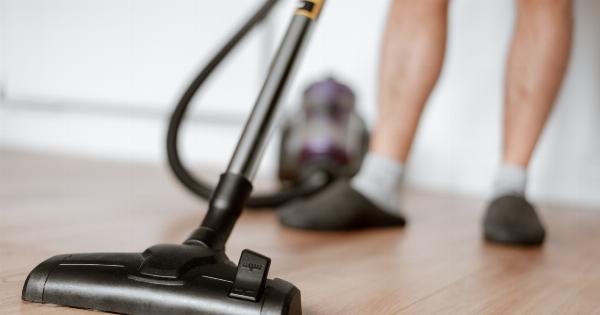Allergies are a common problem that millions of people experience worldwide. They can cause everything from sneezing and itching to more serious reactions like anaphylaxis.
Despite being so widespread, many people still make big mistakes when managing their allergies. Here are some of the biggest blunders you may be making with your allergies, and how to avoid them.
Not Knowing Your Allergies
The first step to managing allergies effectively is understanding exactly what you’re allergic to. Many people assume they have a general allergy to pollen or certain foods, but specific allergies can vary widely.
Get an allergy test done by an allergist or doctor to figure out exactly what your triggers are. This will help you avoid these triggers and also ensure that your medication is effective. For instance, if you’re allergic to peanuts and not just walnuts, carrying an EpiPen for peanut allergies specifically could be life-saving.
Ignoring Symptoms
Ignoring allergy symptoms is another common mistake. People often think that mild symptoms like sneezing or nasal congestion are just part of life, so they avoid treatment.
However, not addressing these symptoms can lead to more serious health problems, like increased asthma attacks or even sinus infections. Pay close attention to changes in your symptoms, and track them in a diary to show your doctor if need be.
Act quickly when you experience any severe symptoms, like shortness of breath or swelling, as these may be signs of anaphylaxis which can be life-threatening.
Not Using Medications Correctly
Another common mistake people with allergies make is not using their medications correctly. Over-the-counter antihistamines and nasal sprays must be taken as directed. Failing to do so could leave you with less effectiveness in treating symptoms.
If your over-the-counter medication isn’t working for you, see your doctor or an allergy specialist for advice on prescription options. Some people may also need an EpiPen if they are prone to severe allergic reactions. If you are prescribed one, make sure you know how to use it correctly, so that it can be there to save your life if you need it.
Not Being Prepared
If you know you have a specific allergy, always make sure you are prepared for it. This could mean carrying an EpiPen if you have severe allergic reactions, or simply avoiding certain foods.
When you travel, make sure you have enough medication on hand and research hospitals and local pharmacies in case of emergencies. If you have a child with allergies, make sure their school and caregivers are aware of the allergy and know how to handle it if needed.
Assuming Medications Will Completely Fix Everything
Although medications can help alleviate symptoms, they’re not a complete solution. You also need to minimize your exposure to allergens.
Simple steps like washing your hands frequently, using air purifiers, or keeping humidity in check can all help reduce allergens in your environment. Additionally, specific foods may help if you have oral allergy syndrome, since some fruits and vegetables can cause an allergic reaction because of the proteins they contain. These foods include ginger, rice, and broccoli.
Not Decreasing Pollution Exposure
Outdoor air pollution triggers allergic reactions. To lessen the impact of this pollution, you must take everyday measures to decrease your exposure. When possible, avoid outdoor air pollution sources such as exhaust fumes and smoke.
Make it a habit to check air quality levels in advance so you can plan your day. Even walking in densely populated areas can expose you to pollutants that could trigger your allergies.
Assuming Your Allergies Will Resolve on Their Own
Allergies can last for years without treatment, and in some cases, they never completely go away. They can get worse over time or change in their triggers.
If your symptoms don’t go away after treating them, or if you experience new discomforts, you should see a physician or an allergist. They can help you diagnose the problem and suggest appropriate treatment options, including allergy shots or other immunotherapy.
Forgetting the Impact of Stress and Fatigue
Stress and fatigue can intensify allergy symptoms and make them tougher to deal with. Simply sleeping for a more extended period or practicing relaxation techniques can help improve your allergies.
Yoga, meditation, and deep breathing exercises are simple relaxation techniques that you can practice at home to help you combat stress and fatigue. Plus, taking time for self-care and getting enough sleep is vital for your overall health and wellbeing.
Ignoring Cross-Reactions
If you experience allergies to certain foods, you may also have other cross-reactions. For example, if you are sensitive to pollen, you may also have allergies to ragweed or botanic.
This is because proteins found in pollen are similar to proteins found in these other plants. If you have oral allergy syndrome, which is an allergy to certain foods that cross-react with pollen, you may have an issue with a range of fruits and vegetables, including apples, peaches, and sometimes even soy.
Talk to your allergist to determine which foods may be causing your cross-reactions.
Not Maintaining a Health Journal
Maintaining a health journal is an excellent way to keep track of your allergy symptoms, especially when they occur and how they impact your daily routine. You can note what you ate, where you were, what time it was, and how you were feeling.
This information can help you identify triggers and avoid them in the future.
Conclusion
Allergies can pose a significant threat to your health if not properly managed. While many of the mistakes outlined above may seem minor, they can add up to create significant problems.
By making a few simple changes, you can dramatically improve your quality of life and prevent long-term complications. Don’t hesitate to seek medical help if you need it.




























